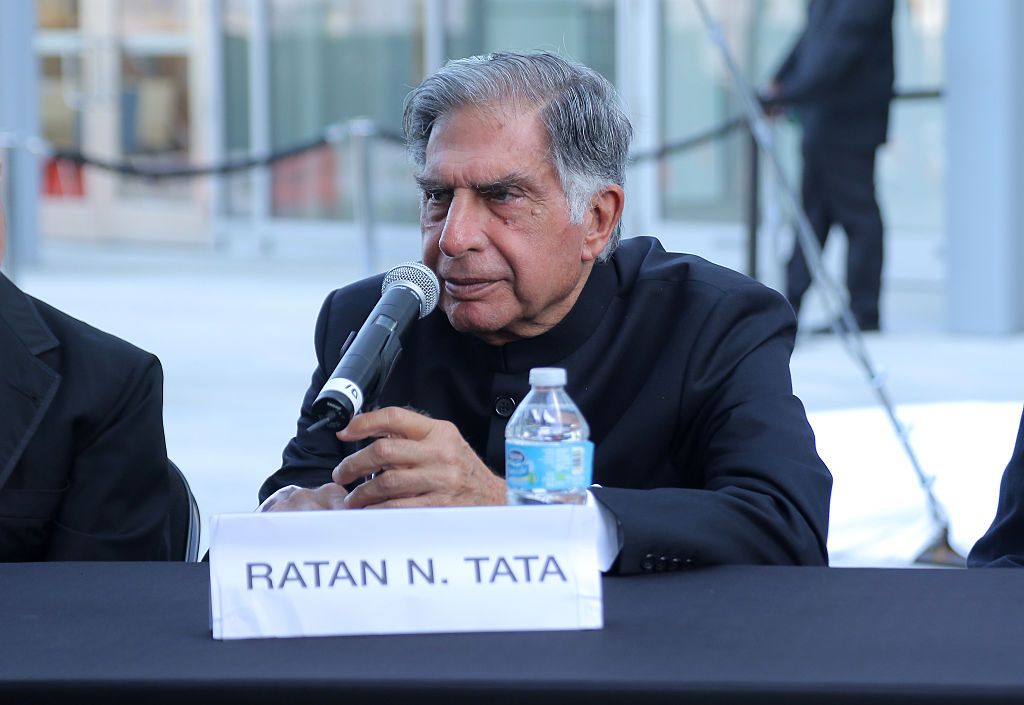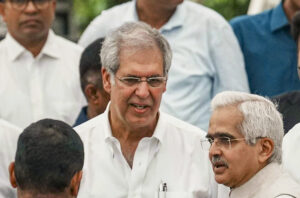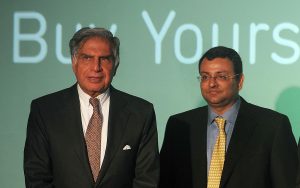- Thursday, January 02, 2025
When a search for Ratan Tata’s successor was underway in 2011, Noel Tata was among the several candidates interviewed

By: Shajil Kumar
RATAN TATA, the late Chairman Emeritus of Tata Sons, felt that his half-brother Noel Tata needed greater exposure and experience in handling difficult assignments to succeed him as the head of the principal investment holding firm and promoter of Tata companies, according to a recently released book.
Noel Tata was recently appointed as the Chairman of Tata Trusts – a collective of charities that indirectly controls the $ 165 billion salt-to-software conglomerate – after the death of Ratan Tata.
Noel was among several candidates interviewed in March 2011 when a search for Ratan Tata’s successor was underway.
Selection process
Ratan Tata had decided to stay away from a selection committee to find his successor despite many wanting him to be a part of it – a decision he would later regret, according to a biography of the late industrialist – “Ratan Tata A Life” – authored by Thomas Mathew and published by HarperCollins.
One of the reasons for Ratan Tata to stay away from the committee was that there were many aspirants from within the Tata Group, and he “wanted to give the contenders the comfort and confidence of knowing that a collective body of equals would recommend one of them based on a unanimous decision, or if not by a majority, and not on account of the Chairman’s preference”.
The second reason was more personal as there was the “overwhelming view that his half-brother Noel Tata was the ‘default candidate’ to succeed him”, amid a push from the Parsis in the company and the traditionalists in the community as they considered him to be one of them.
However, according to the book, for Ratan Tata, only “the talent and the values of the person mattered”, with religion, community or the region contenders came from were hardly relevant.

Ratan Tata was even open for the selection committee to consider foreigners if they had the right qualifications.
The late Chairman Emeritus was also clear that he should not be seen as steering the selection committee or ‘pushing it in one direction or the other’.
Even in the event of Noel not being selected, Ratan Tata did not want to be seen as ‘anti-Noel’, wrote the author.
“Perhaps, if Noel had had the experience of handling difficult assignments, he could have established his credentials more forcefully,” the book quoted Ratan Tata as saying.
More importantly, Noel could have had the opportunity to demonstrate the ‘courage and enterprise’ that JRD had identified as a prerequisite to be appointed as the Tata group chairman.
“For Noel to compete successfully for the top post ‘he should have greater exposure than he has had,” said Ratan Tata. “Partly, his not having it has been his own choice.”
Citing an interview with ‘The Times’, the book noted that Ratan Tata had stated that he ‘rose up through the business’ and added that even if he had a son, he would have done something to not have him automatically become his successor.
Cyrus Mistry selection
Late Cyrus Mistry, who was initially part of the selection committee, was chosen to succeed Ratan Tata, who retired as Chairman of Tata Sons in December 2012.

For a year Mistry was the ‘chairman-designate’ before he took over as Chairman of Tata Sons after Tata’s retirement.
However, Tata began having second thoughts about Mistry’s ‘suitability’ during his tenure as chairman-designate.
While approving the recommendation of the selection panel, Tata had two observations while nodding Mistry as his successor.
He wanted Mistry, who was then the MD of Shapoorji Pallonji Group with interests similar to the Tatas such as construction, real estate, textiles, engineering goods, and power among others to ‘sever all relations’ with the company by creating a separation that would be ‘legal and tenable’.
The second was that for a year, Mistry would do ‘parallel running’ with Tata to ensure that he got insights and hands-on experience on how to run the Tata Group, as per the book, based on interviews with Tata himself, his family, friends, former colleagues and business associates.
“Ratan avers that though his interactions with Mistry were largely limited to Tata Sons board meetings, he was impressed with him. When Ratan was able to observe him at close quarters while Mistry was the deputy Chairman, he was reassured,” wrote the author, a retired bureaucrat.
“But by the end of the one year of parallel running, Ratan began to have second thoughts about Mistry’s suitability as the chairman-designate. He recalls that some of the latter’s ‘sharp interventions’ had surprised him.
Deep down, he pondered if it would be prudent to appoint a man whose ethos could potentially conflict with that of the Tatas.
Rift with Mistry
Quoting Tata, the book said, “Mistry had a particular talent to identify potential pitfalls in strategies” but he was “not sure if Mistry would use these qualities for the benefit of Tata Sons and whether he would always uphold the fundamental values of the group”.
While Tata later lamented that he did not have the opportunity to fully assess the new chairman (Mistry), many of his critics blame him for bringing the situation upon himself by choosing to stay away from the selection committee.
Mistry, who took over as Tata Sons Chairman after Tata retired on December 28, 2012, was sacked on October 24, 2016 as Tata Trust had “lost confidence in him for a variety of reasons” triggering a bitter fallout leading to boardroom and legal battles.
Yet, “Mistry’s removal ‘in some way’ was the ‘most painful and difficult thing for Ratan”, says the book quoting Nitin Nohria, former dean of Harvard Business School, who was chosen by Tata to help Mistry to be successful. (PTI)